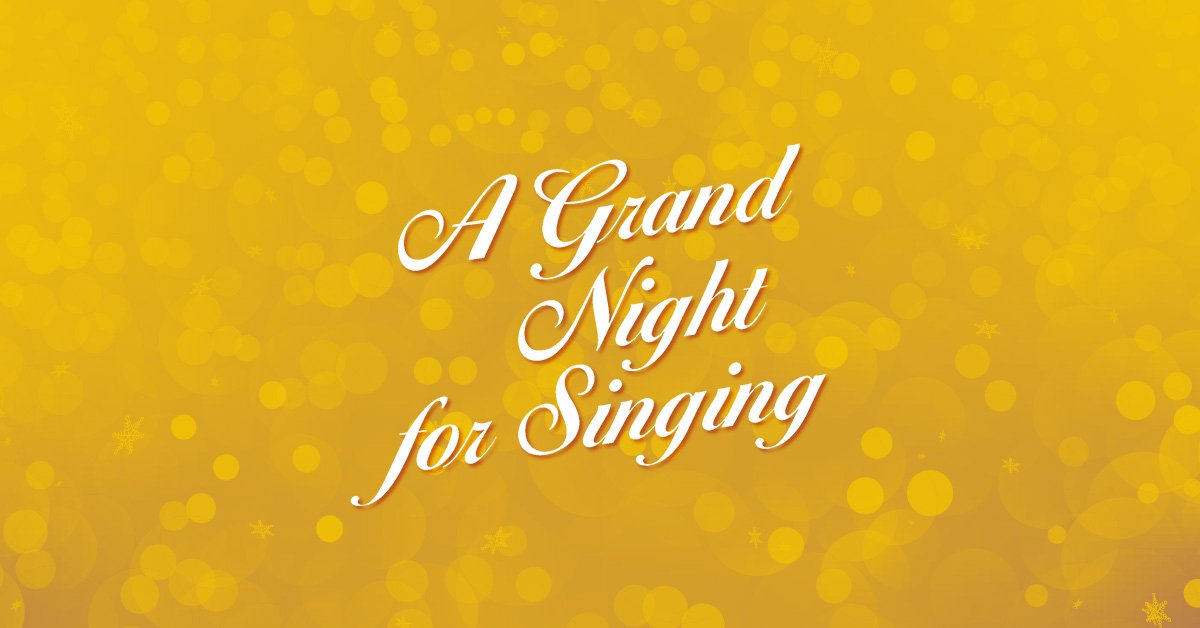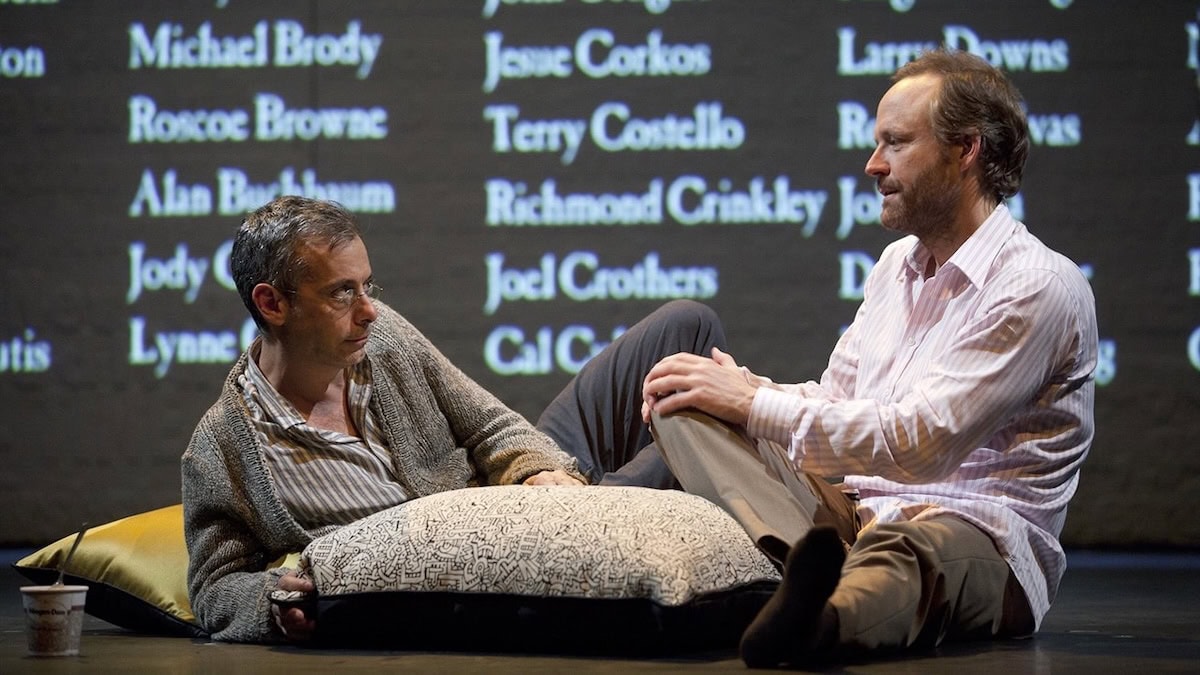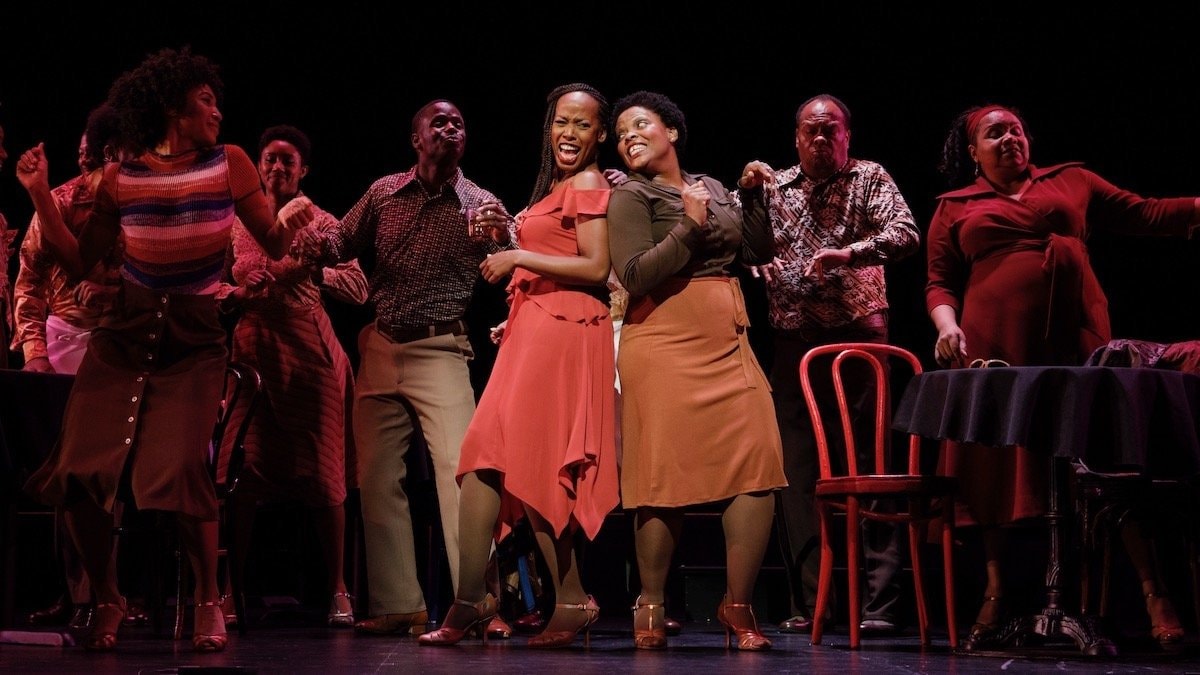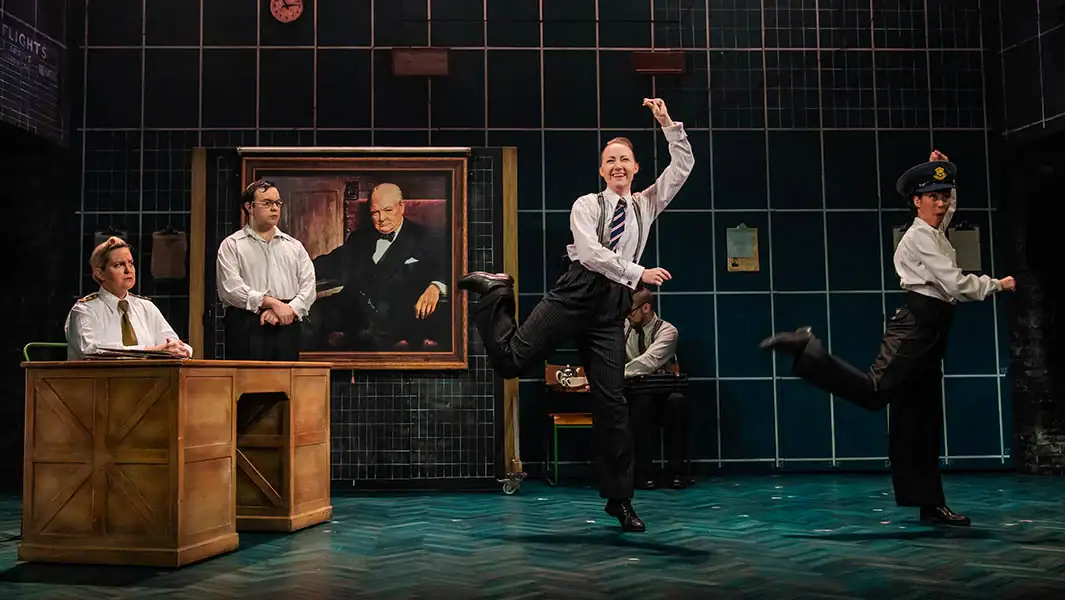
Rodgers & Hammerstein’s A Grand Night For Singing, the hit Broadway musical revue celebrating the work of musical theatre’s premier collaborators, is now available for licensing in a 90-minute, one-act version (US/UK). To celebrate the release, we’re sharing this article from the R&H archives: Theatre professional Bert Fink interviews Walter Bobbie, the director of the show’s original Broadway production.
“How Do You Hold a Moonbeam in Your Hand?”
(And Other Challenges of Creating a Rodgers & Hammerstein Revue)
When Rodgers & Hammerstein’s A Grand Night for Singing (US/UK) opened at the Roundabout Theatre on November 17, 1993, it marked the first time that the songs of Richard Rodgers and Oscar Hammerstein II had been presented on Broadway in a revue format. Dozens of the team’s brethren—from Cole Porter and Noel Coward to Stephen Sondheim and Jerry Herman—had been celebrated in musical revues, so why did it take so long—50 years, in fact—for Rodgers & Hammerstein to get a showcase of their own?
The duo set musical theatre on a new course when they created Oklahoma! in 1943, making the songs work for the story instead of the other way around. They were the unlikeliest of pioneers (“Songwriters, eh?” Groucho once cracked while grilling them on national TV; “You look like a couple of chiropractors!”) whose achievements reverberate to this day. Their songs became standards but are so clearly borne out of detailed situations and richly drawn characters that re-establishing them in brand-new contexts can be awfully tricky.
A Rorschach test: I say “Honey Bun”—you see Mary Martin in an oversized sailor suit. “Cain’t Say No”—gingham and Oklahoma haystacks. Who can hear “Shall We Dance?” without instantly seeing Anna take the King for a whirl across the Imperial Ballroom? And how do you solve a problem like Maria without those four nuns kvetching about their troublesome, lovable novice? Well, in that case, if you’re Walter Bobbie creating A Grand Night for Singing, you conceive it as the lament of a lovelorn lad.
Tapped for the plum assignment of shaping an evening of Rodgers & Hammerstein songs, Walter Bobbie decided to start at the very beginning. Since Hammerstein always wrote the lyrics first, that meant turning to his words for inspiration, which lead Bobbie to the very clean, very fresh pages of Hammerstein’s compendium, lyrics. “Reading the words,” says Bobbie, “without characters, scenes or situations, ideas just began to click. I was reading ‘Many a New Day’ and I thought, ‘Wow, listen to that—it sounds like a women’s support group!’ and ‘Something Wonderful’—that song is incredibly modern and insightful. It could be a Hillary Clinton, or any other extremely strong woman who is attracted to an equally strong man, a person of power.”
“I think because Hammerstein wrote from the inside out, I never tried to force an idea on a number. When an idea naturally sprang from within the lyric, then it seemed legitimate to me. I knew I couldn’t lose the heart of the songs, and I discovered that as long as we didn’t betray the integrity of the writing, new ways of hearing the songs could emerge. And as they emerged, so did the structure of our show.”
Bobbie developed Grand Night with musical director and arranger Fred Wells. They pored over scores for all eleven R&H musicals; they waded through the archives at the R&H office in Manhattan, sniffing for trunk songs and rarities; they noodled at the piano. The process took several months as, gradually, the revue took shape, with an initial viewing high atop Radio City at Rainbow & Stars.
“We wanted the evening to be romantic,” says Bobbie, “an emotional journey through the various stages of love. We would begin with the dawning of romance—young infatuation and the awakenings of real love: ‘The Surrey with the Fringe on Top’ became a great pick-up number. ‘We Kiss in the Shadow’ is about a clandestine romance. Numbers like ‘Hello, Young Lovers’ and ‘I Cain’t Say No’ fell into place as well.”
From courtship and young love, the journey continues into commitment—or backing away from it. When the men advise the ladies “Don’t Marry Me,” the ladies respond with “Many a New Day” and “I’m Gonna Wash that Man Right Outa My Hair.” Act I proceeds through the advent of true love.
“We constructed a medley to end the first act—a romantic triangle, really. A boy fumbles in his attempt to win the girl (‘That’s the Way It Happens’) and loses her to another guy (‘All at Once You Love Her’). Finally, when the boy is really down and out emotionally, we bring him a sense of hope, that message of incredible faith and optimism that runs through so much of Hammerstein’s work (‘Some Enchanted Evening’).”
Bobbie insisted that he wasn’t going to shoehorn any songs into the revue. “I don’t have a ‘must use’ list of hits,” he says. “It would have been too long anyhow. But in a moment like the one I’ve just described, with an emotional set up like that, how could you not use ‘Some Enchanted Evening?’ So the challenge here became figuring out why this song is so famous. What is it about these words? Many of these songs had to be heard as if for the first time, which is a great challenge and one that was worth the investment. When you really listen, this stuff crackles, and it crackles because it is still relevant.”
The arc of Grand Night continues into mature love and relationships. “Getting married, having a family, raising children (“I Know it Can Happen Again,” “When the Children are Asleep,” “My Little Girl”) —we wanted to bring all that in,” says Bobbie. “The feelings expressed in these songs are so simple, so real, but they also convey the responsibilities and challenges of enduring love, as well as the pain. I wanted this show to ‘grow up’ emotionally, so that the same man who early in the evening is so beside himself singing ‘Maria’ has taken this surprising and obviously difficult journey to the feelings expressed in ‘Love, Look Away.’ And yet we wanted to leave the audience with a hopeful feeling about the nature of love itself.”
“‘Impossible’ is certainly about hope, and beating the odds,” Bobbie continues, “and ‘I Have Dreamed’ soars—it’s supposed to take you up and out. Fred is a brilliant vocal arranger, and it was thrilling to watch him take an idea and structure it into a musical moment. The finale is essentially five simultaneous soliloquies about love. The cast isn’t so much singing to one another any longer as they are singing to the audience, reaching out, celebrating the possibilities of l
ove.”
Surprisingly, Walter Bobbie had never directed a Rodgers & Hammerstein musical before he began work on Rodgers & Hammerstein’s A Grand Night for Singing. In retrospect, that probably worked to his and the show’s advantage. “The range of the writing, the emotional sophistication and insight was a constant revelation,” he says. “There is such a powerful message of perseverance in their musicals, which is why the songs are so confident. The situations are about overcoming obstacles; the characters are survivors willing to throw themselves full throttle into emotional circumstance. There’s no timidity about them—they fall in love, they get hurt, they don’t apologize. They say, “Boy, did I love deeply. Boy, did I blow it. But I’m gonna move on, I’m gonna rise above it and fall in love again.”
…
Visit Concord Theatricals for more information on licensing the original Rodgers & Hammerstein’s A Grand Night for Singing (US/UK) or the new one-act version (US/UK)

The Truth Behind… The Normal Heart

Musical Revues

